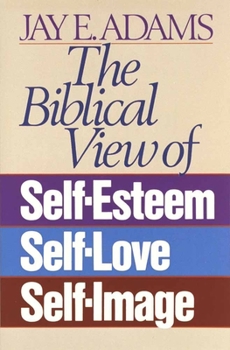The Biblical View of Self-Esteem, Self-Love, and Self-Image
Select Format
Select Condition 
Book Overview
Who am I? Why am I here? Where am I going? Familiar questions in our day and age. But has our search for answers led us too far in the wrong direction: away from our true position in Christ and toward a dangerous emphasis on self?
Recent decades have seen the rise of a powerful and influential movement within the church. Identified by labels such as "self-image," "self-esteem," "self-worth," and "self-love," this movement has one common denominator--the emphasis on self. Regardless of religious persuasion, everyone seems to be fighting what they perceive to be a shared enemy: low self-esteem.
Now well-known biblical counselor and noted author Jay Adams brings much-needed clarification to the area of self-esteem and offers the church and every believer a truly biblical view of self.






